Are you wondering what impacts Container Shipping Costs from China to Nigeria in 2025?
As global trade remains increasingly competitive and supply chain dynamics continue to evolve, understanding the latest trends and factors affecting container shipping costs is essential for successful importers. In this article, we break down the current pricing landscape, highlight crucial factors such as freight rates, container types, and recent market fluctuations, and offer practical tips to help your business maximize efficiency and reduce expenses. Stay informed and make smarter shipping decisions for your China to Nigeria supply chain.
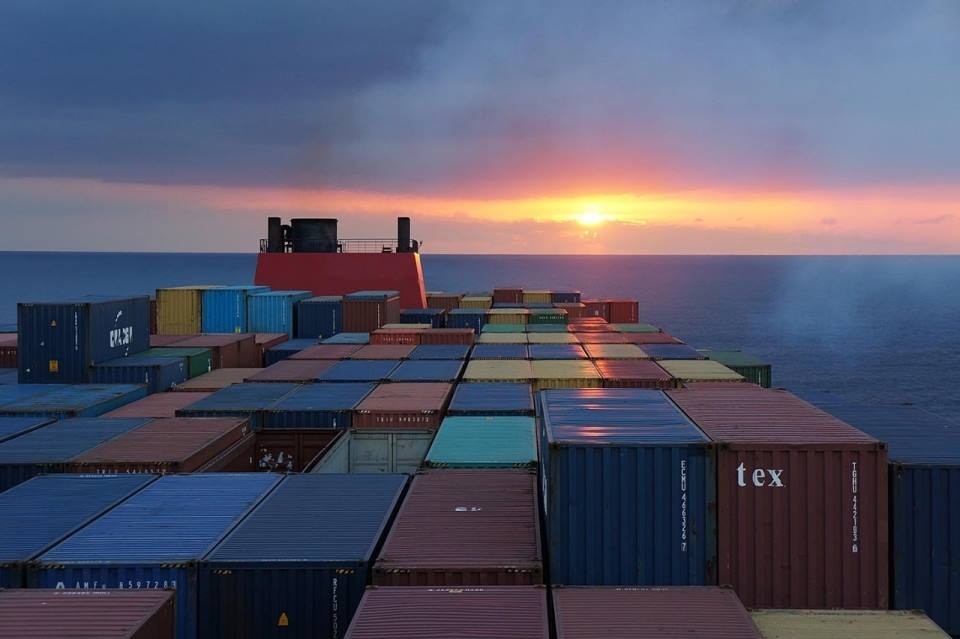
Key Factors Influencing Shipping Costs
Shipping Route and Distance
The shipping route plays a significant role in determining container shipping costs. The distance between the origin and destination directly influences fuel consumption, transit time, and overall shipping rates. The average distance from major ports in China, such as Shanghai or Shenzhen, to Lagos, Nigeria’s primary port, is approximately 6,000 nautical miles, with transit times varying from 30 to 45 days depending on the shipping line and route chosen.
Cost Comparison Table
| Shipping Route | Average Distance (Nautical Miles) | Estimated Transit Time | Average Cost (USD) |
|---|---|---|---|
| Shanghai to Lagos | 6,000 | 30-45 days | $1,500 – $2,500 |
| Shenzhen to Lagos | 6,200 | 30-45 days | $1,600 – $2,600 |
| Ningbo to Lagos | 6,100 | 30-45 days | $1,550 – $2,550 |
Container Size: 20ft vs. 40ft
The choice between a 20ft and 40ft container significantly affects shipping costs. A standard 20ft container can hold approximately 33 cubic meters of cargo, while a 40ft container offers double that capacity, accommodating around 67 cubic meters. Importers must assess their cargo volume and weight to determine the most cost-effective option.
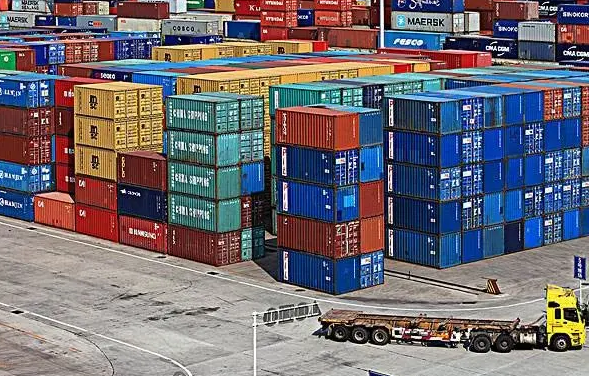
- 20ft Container: Generally more affordable for smaller shipments. Ideal for businesses with limited cargo volume or those looking to minimize shipping costs.
- 40ft Container: More economical for larger shipments. The cost per cubic meter tends to be lower compared to the 20ft option. This size is suitable for businesses looking to maximize cargo space.
Cost Comparison Table
| Container Size | Capacity | Average Shipping Cost (USD) | Ideal For |
|---|---|---|---|
| 20ft | 33 cbm | $1,500 – $2,000 | Smaller shipments |
| 40ft | 67 cbm | $2,500 – $3,500 | Larger shipments |
Mode of Transport: FCL vs. LCL
The mode of transport selected—Full Container Load (FCL) or Less than Container Load (LCL)—also has a substantial impact on shipping costs.
-
FCL (Full Container Load): This method involves booking an entire container for exclusive use. FCL is often more cost-effective for larger shipments, allowing businesses to send more goods at a fraction of the cost per unit. Importers benefit from reduced transit times, as FCL shipments typically prioritize loading and unloading schedules.
-
LCL (Less than Container Load): This option is suitable for smaller shipments that do not fill an entire container. While LCL may appear to be a more affordable option for smaller businesses, it can incur additional costs such as handling fees, longer transit times, and potential complications during customs clearance.
Cost Comparison Table
| Mode of Transport | Description | Average Cost (USD) | Pros | Cons |
|---|---|---|---|---|
| FCL | Entire container for one shipper | $1,500 – $3,500 | Cost-effective for large shipments | Higher upfront cost |
| LCL | Shared container space | $200 – $1,200 per cubic meter | Lower cost for small shipments | Longer transit times, handling fees |
Understanding these factors—shipping routes, container sizes, and transport modes—is essential for businesses importing goods from China to Nigeria. Proper analysis and assessment of individual shipping needs can help optimize logistics, ultimately leading to cost savings and improved operational efficiency.
For those looking to streamline shipping from China to Nigeria, partnering with a reputable freight forwarder such as Dantful International Logistics can provide a highly professional, cost-effective, and high-quality one-stop logistics service. Their expertise ensures that you navigate the complexities of international shipping smoothly, making the entire process more efficient.
READ MORE:
- Shipping From China To Algeria
- Shipping From China To Angola
- Shipping From China To Morocco
- Shipping From China To Nigeria
- Shipping From China To Kenya
- Shipping From China To Tanzania
- Shipping From China To South Africa
Shipping Costs for Containers from China to Nigeria
Container shipping is a vital part of global trade, especially when importing goods from China to Nigeria. Understanding the specific costs associated with different container sizes and shipping methods is essential for businesses to budget effectively and optimize their logistics operations. Below is a detailed examination of the shipping costs for 20ft and 40ft containers, as well as insight into additional fees and charges that may arise during the shipping process.
20 ft Container Shipping Cost from China to Nigeria
When shipping a 20ft container from China to Nigeria, businesses can expect varying costs based on several factors, including shipping route, freight forwarder, and current market conditions. A 20ft container typically holds around 33 cubic meters of cargo and is ideal for smaller shipments.
Cost Breakdown for 20ft Containers
The total cost for shipping a 20ft container consists of several components:
| Cost Component | Description | Estimated Cost (USD) |
|---|---|---|
| Ocean Freight | Base cost of transporting the container across the sea | $1,500 – $2,000 |
| Documentation Fees | Charges for bills of lading and other shipping documents | $100 – $300 |
| Port Fees | Fees charged by the origin and destination ports | $200 – $500 |
| Insurance | Optional coverage for goods in transit | $100 – $250 |
| Customs Clearance | Charges for clearing goods through customs | $150 – $300 |
| Total Estimated Cost | Sum of all components | $2,100 – $3,650 |
The total estimated cost for shipping a 20ft container from China to Nigeria generally ranges from $2,100 to $3,650, depending on the specifics of the shipment.
40 ft Container Shipping Cost from China to Nigeria
For larger shipments, a 40ft container is often more economical. This container size can hold approximately 67 cubic meters of cargo, making it suitable for businesses with larger inventory requirements.
Cost Breakdown for 40ft Containers
Similar to the 20ft container, the costs associated with shipping a 40ft container include various components:
| Cost Component | Description | Estimated Cost (USD) |
|---|---|---|
| Ocean Freight | Base cost of transporting the container across the sea | $2,500 – $3,500 |
| Documentation Fees | Charges for bills of lading and other shipping documents | $100 – $300 |
| Port Fees | Fees charged by the origin and destination ports | $200 – $500 |
| Insurance | Optional coverage for goods in transit | $100 – $250 |
| Customs Clearance | Charges for clearing goods through customs | $150 – $300 |
| Total Estimated Cost | Sum of all components | $3,100 – $5,850 |
The total estimated cost for shipping a 40ft container from China to Nigeria typically ranges from $3,100 to $5,850.
Comparison of FCL and LCL Shipping Costs
When considering shipping options, businesses may choose between Full Container Load (FCL) and Less than Container Load (LCL). The cost implications for these methods vary considerably:
| Shipping Method | Description | Average Cost (USD) | Pros | Cons |
|---|---|---|---|---|
| FCL | Exclusive use of an entire container | $2,100 – $5,850 (for 20ft or 40ft) | Lower cost per unit for large shipments | Higher upfront costs |
| LCL | Sharing container space with other shippers | $200 – $1,200 per cubic meter | Cost-effective for small shipments | Longer transit times and handling fees |
Choosing between FCL and LCL will depend on the specific needs of the business, cargo volume, and budget considerations.
Additional Fees and Charges
Aside from the primary shipping costs, various additional fees and charges may arise during the shipping process. It is essential for importers to be aware of these potential costs to avoid unexpected expenses.
Port Fees and Handling Charges
Port fees are imposed by both the loading and unloading ports for services rendered, including loading and unloading containers, storage, and terminal handling. These fees can vary significantly depending on the port’s location and operational policies. It is advisable to inquire about specific port fees associated with both the origin and destination ports to obtain an accurate total cost.
Customs Duties and Taxes
Upon arrival in Nigeria, imported goods are subject to customs duties and taxes. The rates depend on the type of goods being imported and their declared value. Importers must ensure compliance with Nigerian customs regulations to avoid delays and additional penalties. It is beneficial to work with a freight forwarder like Dantful International Logistics to navigate the complexities of customs clearance efficiently, ensuring all documentation is in order and minimizing the risk of unexpected charges.
Understanding the costs associated with shipping containers from China to Nigeria is crucial for businesses aiming to optimize their logistics operations. By considering container size, shipping methods, and any additional fees, importers can make informed decisions that align with their budget and operational needs. For those looking for a reliable partner in international logistics, Dantful offers a highly professional and cost-effective shipping service tailored to meet the needs of global traders.
Dantful International Logistics Services:
- Dantful Ocean Freight Services
- Air Freight From China
- Amazon FBA Freight Forwarding
- WAREHOUSE Services
- One-Stop Customs Clearance Solution
- Cargo Insurance Services in China
- DDP Shipping Services By Dantful Logistics
- Out of Gauge Cargo Transportation Shipping Services
Shipping Time from China to Nigeria
When planning to import goods from China to Nigeria, understanding shipping times is crucial for effective inventory management and customer satisfaction. The transit times can vary widely based on several factors, including the shipping method and the efficiency of the logistics provider.
Average Transit Times for Sea Freight
For businesses utilizing sea freight to transport containers from China to Nigeria, the average transit time typically ranges from 30 to 45 days. This timeframe can vary based on the specific ports of departure and arrival, as well as the shipping route taken. Here’s a breakdown of average transit times for major routes:
| Route | Average Transit Time (Days) |
|---|---|
| Shanghai to Lagos | 30 – 40 |
| Shenzhen to Lagos | 35 – 45 |
| Ningbo to Lagos | 30 – 45 |
| Guangzhou to Lagos | 35 – 50 |
These times reflect the duration for ocean transit only and do not account for additional time required for loading, unloading, customs clearance, and transport to the final destination.
Factors Affecting Shipping Duration
Several factors can influence shipping duration when transporting goods from China to Nigeria:
-
Port Congestion: Some ports experience significant congestion, leading to delays in loading and unloading containers. This can extend overall shipping times.
-
Shipping Line Schedules: Different shipping lines have varying schedules, which can impact how quickly a container is loaded onto a vessel. Delays in departures can result in longer transit times.
-
Customs Clearance: The efficiency of customs clearance procedures at both the origin and destination ports can affect the overall shipping time. Any discrepancies in documentation or inspections can lead to delays.
-
Weather Conditions: Adverse weather conditions can disrupt shipping schedules, especially during the monsoon season or typhoons, impacting transit times.
-
Inland Transportation: The efficiency of inland transport systems within Nigeria can also affect the overall delivery time from the port of entry to the final destination.
Understanding these factors is essential for importers aiming to manage their supply chain effectively and ensure timely delivery of goods.
Tips for Reducing Container Shipping Costs
Reducing container shipping costs while maintaining efficiency is a goal for many businesses importing from China. Below are some strategic tips that can help achieve cost savings.
Choosing the Right Freight Forwarder
Selecting the right freight forwarder can significantly impact overall shipping costs. A reputable forwarder will have established relationships with shipping lines and can negotiate better rates. When choosing a freight forwarder, consider the following:
-
Experience and Expertise: Look for a forwarder with extensive experience in shipping from China to Nigeria. They should understand local regulations and customs procedures to streamline the shipping process.
-
Service Portfolio: A forwarder offering a comprehensive range of services—including customs clearance, insurance services, and warehouse services—can provide a one-stop solution, saving time and money.
-
Transparent Pricing: Ensure that the freight forwarder provides transparent pricing with no hidden fees. Request a detailed breakdown of all costs involved in the shipping process.
-
Customer Reviews and References: Research customer reviews and ask for references to gauge the reliability and efficiency of the freight forwarder.
Consolidating Shipments for Cost Efficiency
Consolidating shipments is an effective strategy for reducing shipping costs. This method involves combining multiple smaller shipments into one larger shipment, which can lower costs significantly. Here are some benefits of consolidating shipments:
-
Economies of Scale: Larger shipments typically benefit from lower per-unit shipping rates. By consolidating goods, businesses can take advantage of this cost efficiency.
-
Reduced Handling Fees: Fewer, larger shipments can lead to reduced handling fees at ports, as each shipment incurs its own handling costs.
-
Improved Inventory Management: Consolidation allows businesses to better manage inventory levels by timing shipments to align with demand, minimizing excess stock.
-
Enhanced Negotiation Power: By shipping larger volumes, businesses may have increased leverage when negotiating rates with freight forwarders and shipping lines.
Implementing these strategies can lead to a more cost-effective and efficient shipping process. For businesses looking for professional assistance in their shipping endeavors, Dantful International Logistics offers a reliable and cost-effective solution tailored to meet the needs of international traders. Their expertise in navigating shipping logistics ensures that clients benefit from efficient shipping practices and competitive rates.
FAQs
- What factors influence container shipping costs from China to Nigeria?
- Container shipping costs are influenced by several key factors, including shipping route and distance, container size (20ft vs. 40ft), and mode of transport (FCL vs. LCL). Each of these elements can significantly impact the overall shipping costs.
- What is the average shipping cost for a 20ft container from China to Nigeria?
- The estimated total cost for shipping a 20ft container from China to Nigeria typically ranges from $2,100 to $3,650. This includes ocean freight, documentation fees, port fees, insurance, and customs clearance.
- How much does it cost to ship a 40ft container from China to Nigeria?
- The total estimated cost for shipping a 40ft container generally ranges from $3,100 to $5,850. Similar to the 20ft container, this price includes multiple components but offers higher capacity for larger shipments.
- What is the difference between FCL and LCL shipping?
- FCL (Full Container Load) involves booking an entire container for exclusive use, which is more cost-effective for larger shipments. LCL (Less than Container Load) shares container space with other shippers, making it suitable for smaller shipments, but it may incur additional handling fees and longer transit times.
- What are the average transit times for shipping from China to Nigeria?
- The average transit time for sea freight from China to Nigeria ranges from 30 to 45 days, depending on the specific shipping route and port of departure and arrival.
- What additional fees should I be aware of when shipping containers?
- Additional costs may include port fees, customs duties and taxes, documentation fees, and insurance. These can vary based on the port’s location and the nature of the goods being shipped.
- How can I reduce my container shipping costs?
- To reduce shipping costs, consider choosing the right freight forwarder with transparent pricing, consolidating shipments to benefit from economies of scale, and ensuring efficient inventory management.

Young Chiu is a seasoned logistics expert with over 15 years of experience in international freight forwarding and supply chain management. As CEO of Dantful International Logistics, Young is dedicated to providing valuable insights and practical advice to businesses navigating the complexities of global shipping.

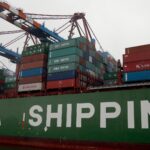





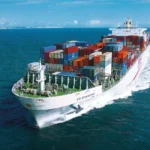



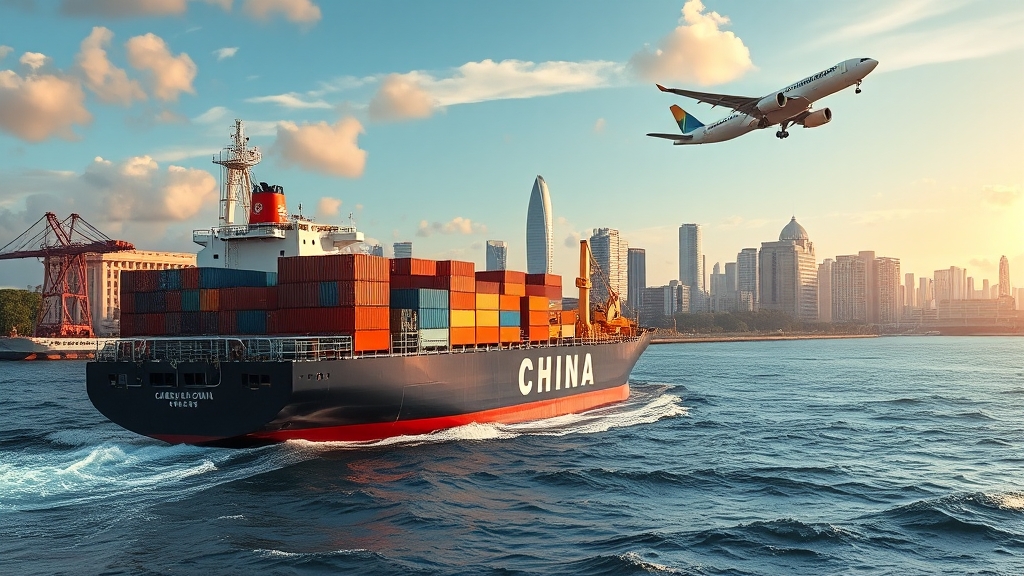
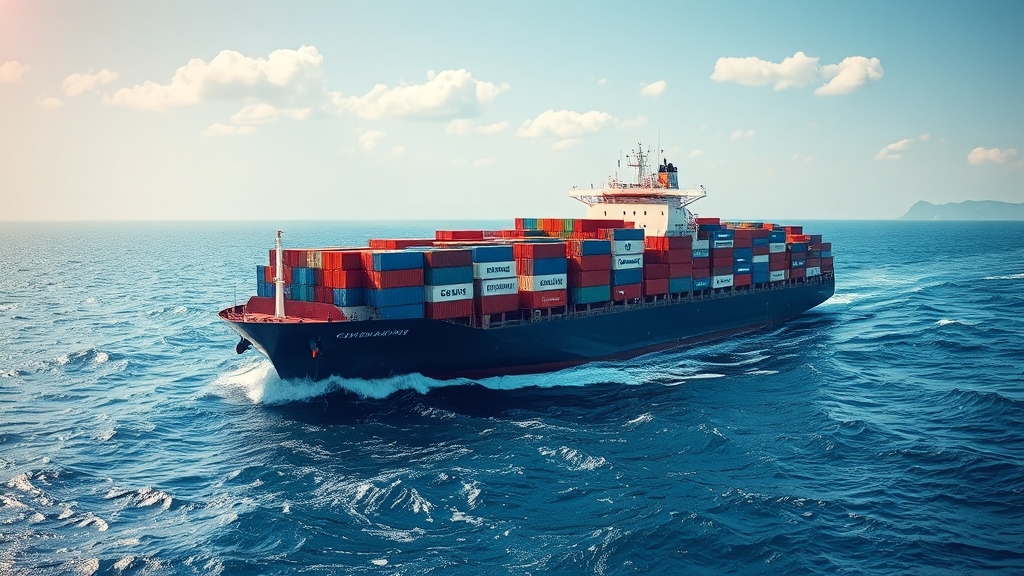
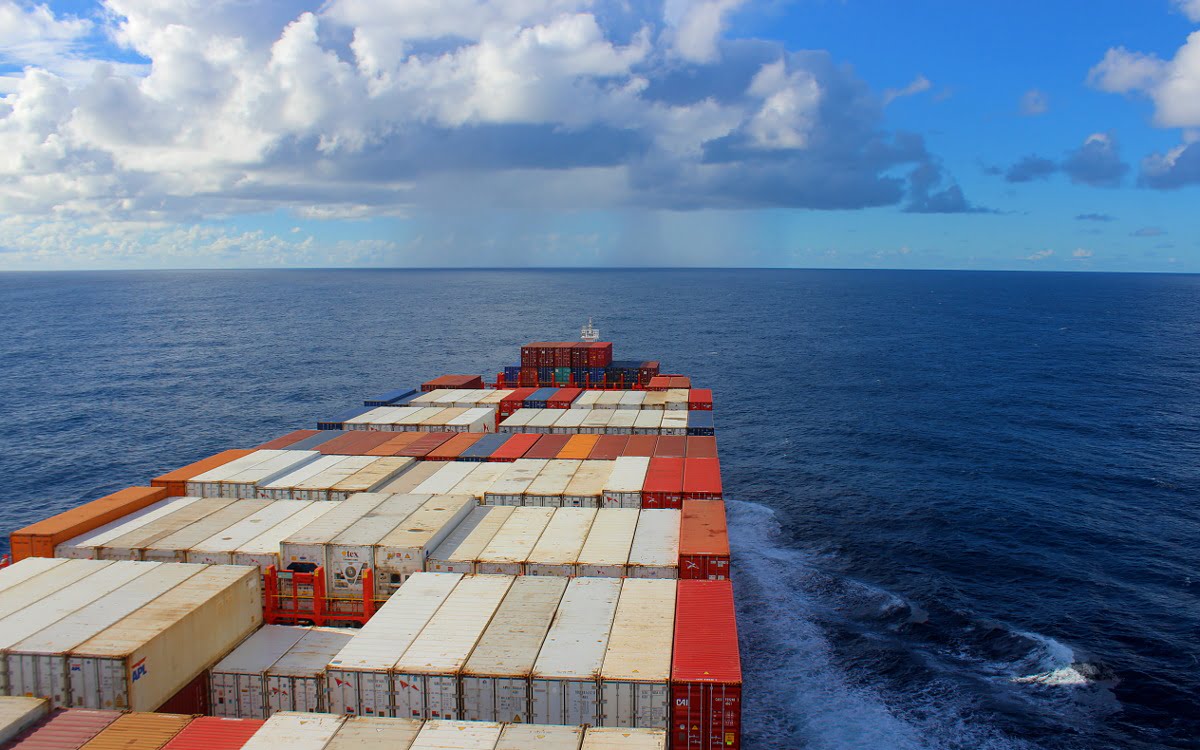

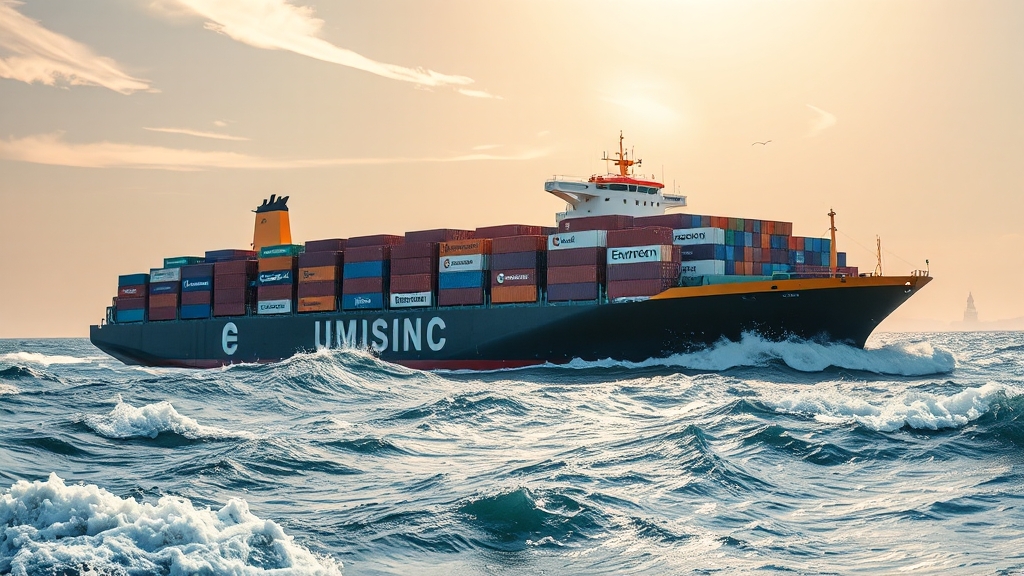





 Afrikaans
Afrikaans Shqip
Shqip አማርኛ
አማርኛ العربية
العربية Հայերեն
Հայերեն Azərbaycan dili
Azərbaycan dili Euskara
Euskara Беларуская мова
Беларуская мова বাংলা
বাংলা Bosanski
Bosanski Български
Български Català
Català Cebuano
Cebuano Chichewa
Chichewa 简体中文
简体中文 繁體中文
繁體中文 Corsu
Corsu Hrvatski
Hrvatski Čeština
Čeština Dansk
Dansk Nederlands
Nederlands English
English Esperanto
Esperanto Eesti
Eesti Filipino
Filipino Suomi
Suomi Français
Français Galego
Galego ქართული
ქართული Deutsch
Deutsch Ελληνικά
Ελληνικά Kreyol ayisyen
Kreyol ayisyen Harshen Hausa
Harshen Hausa Ōlelo Hawaiʻi
Ōlelo Hawaiʻi עִבְרִית
עִבְרִית हिन्दी
हिन्दी Hmong
Hmong Magyar
Magyar Íslenska
Íslenska Igbo
Igbo Bahasa Indonesia
Bahasa Indonesia Gaeilge
Gaeilge Italiano
Italiano 日本語
日本語 Basa Jawa
Basa Jawa ಕನ್ನಡ
ಕನ್ನಡ Қазақ тілі
Қазақ тілі ភាសាខ្មែរ
ភាសាខ្មែរ 한국어
한국어 كوردی
كوردی Кыргызча
Кыргызча ພາສາລາວ
ພາສາລາວ Latin
Latin Latviešu valoda
Latviešu valoda Lietuvių kalba
Lietuvių kalba Lëtzebuergesch
Lëtzebuergesch Македонски јазик
Македонски јазик Malagasy
Malagasy Bahasa Melayu
Bahasa Melayu മലയാളം
മലയാളം Maltese
Maltese Te Reo Māori
Te Reo Māori मराठी
मराठी Монгол
Монгол ဗမာစာ
ဗမာစာ नेपाली
नेपाली Norsk bokmål
Norsk bokmål پښتو
پښتو فارسی
فارسی Polski
Polski Português
Português ਪੰਜਾਬੀ
ਪੰਜਾਬੀ Română
Română Русский
Русский Samoan
Samoan Gàidhlig
Gàidhlig Српски језик
Српски језик Sesotho
Sesotho Shona
Shona سنڌي
سنڌي සිංහල
සිංහල Slovenčina
Slovenčina Slovenščina
Slovenščina Afsoomaali
Afsoomaali Español
Español Basa Sunda
Basa Sunda Kiswahili
Kiswahili Svenska
Svenska Тоҷикӣ
Тоҷикӣ தமிழ்
தமிழ் తెలుగు
తెలుగు ไทย
ไทย Türkçe
Türkçe Українська
Українська اردو
اردو O‘zbekcha
O‘zbekcha Tiếng Việt
Tiếng Việt Cymraeg
Cymraeg יידיש
יידיש Yorùbá
Yorùbá Zulu
Zulu